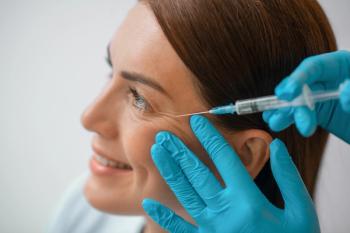
- Balancing Act: Aesthetic Authority Vol.1: No.3
- Volume 1
- Issue 3
Examining CBD Skin Benefits
CBD shows promise, and may offer skin benefits, but scientific evidence is needed.
This is part 2 in a 2-part series.
Before the legalization of cannabis in most of the United States, studies researching related skin benefits were almost nonexistent.
Now, its newfound mainstream popularity boasts anti-inflammatory and analgesic properties. In addition, scientists are finding more evidence for its use in treating dry skin, psoriasis, eczema, and acne.5
In a recent 2019
After three months, researchers saw improved skin and inflammatory symptoms in study participants.
“Based on skin evaluations (hydration, TEWL, elasticity), clinical questionnaires (SCORAD, ADI, PASI), and supported by photographic data and investigators' clinical assessment, the results showed that topical treatment with CBD-enriched ointment significantly improved the skin parameters, the symptoms and also the PASI index score,” according to the study. “No irritant or allergic reactions were documented during the period treatment.”
A 2014 study in the
Still, while Dr. Zirwas says CBD shows promise, nothing has been scientifically proven. CBD products may very well work, he says, but he emphasizes that there is no evidence that they do.
Even so, not all CBD is considered equal.
When discussing CBD with patients, Dr. Zirwas explains that while there is no scientific evidence that CBD works, topical CBD is unlikely to cause problems. Furthermore, it’s hard to know which products have quality CBD.
He suggests referencing ConsumerLab.com for insightful reviews of CBD supplements.
As for the need for concrete evidence in this area, Dr. Zirwas says, “A small, double-blinded study would be needed at minimum to establish the credibility of CBD products. Nothing anecdotal, no case report, no case series, nor any open label study could make it credible.”
References:
- Bhandalkar, S., & Deshmukh, R. (2020, January). CBD Skin Care Market Size, Share & Trends | Research Report by 2026. Allied Market Research. https://www.alliedmarketresearch.com/cbd-skin-care-market
- Zirwas, M. (2020, August 3). CBD and Cosmetics: Does CBD really work? Cosmetic Surgery Forum.
https://www.cosmeticsurgeryforum.com/is-cbd-oil-in-beauty-products-worth-the-hype/ - Oleinik, G. (2020, August 9). What’s in Your CBD Oil? Why Carrier Oil Matters. Daily CBD. https://dailycbd.com/en/carrier-oils/
- Bruni N, Della pepa C, Oliaro-bosso S, Pessione E, Gastaldi D, Dosio F. Cannabinoid Delivery Systems for Pain and Inflammation Treatment. Molecules. 2018;23(10)
- Palmieri B, Laurino C, Vadalà M. A therapeutic effect of cbd-enriched ointment in inflammatory skin diseases and cutaneous scars. Clin Ter. 2019;170(2):e93-e99.
- Barbieri JS, Choi JK, Mitra N, Margolis DJ. Frequency of Treatment Switching for Spironolactone Compared to Oral Tetracycline-Class Antibiotics for Women With Acne: A Retrospective Cohort Study 2010-2016. J Drugs Dermatol. 2018;17(6):632-638.
Articles in this issue
over 5 years ago
Unlock Your Profit Potential with the Revolutionary PRX Protocolover 5 years ago
Strategies for A Successful Hair Practiceover 5 years ago
Starting a Hair Practiceover 5 years ago
Balancing Act: Aesthetic Authority Vol.1: No.3over 5 years ago
Strength and Success in Our Specialtyover 5 years ago
Patient Maskne Prevention Tipsover 5 years ago
Maskne Treatment Protocolover 5 years ago
Treating Maskne Inside and Outover 5 years ago
A Closer Look at CBDover 5 years ago
Updates in Laser Hair RemovalNewsletter
Like what you’re reading? Subscribe to Dermatology Times for weekly updates on therapies, innovations, and real-world practice tips.











